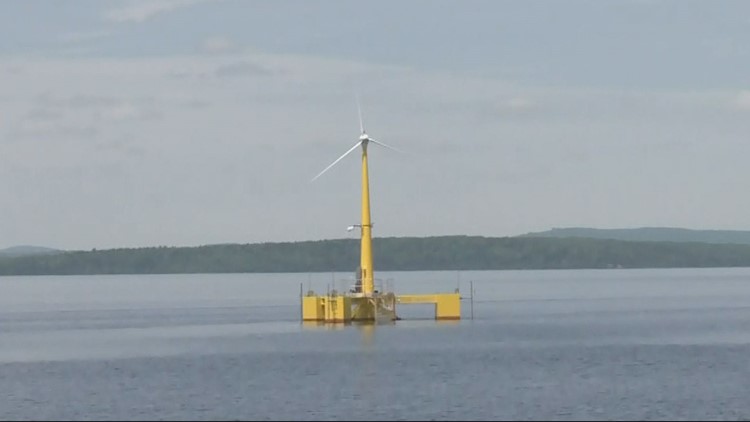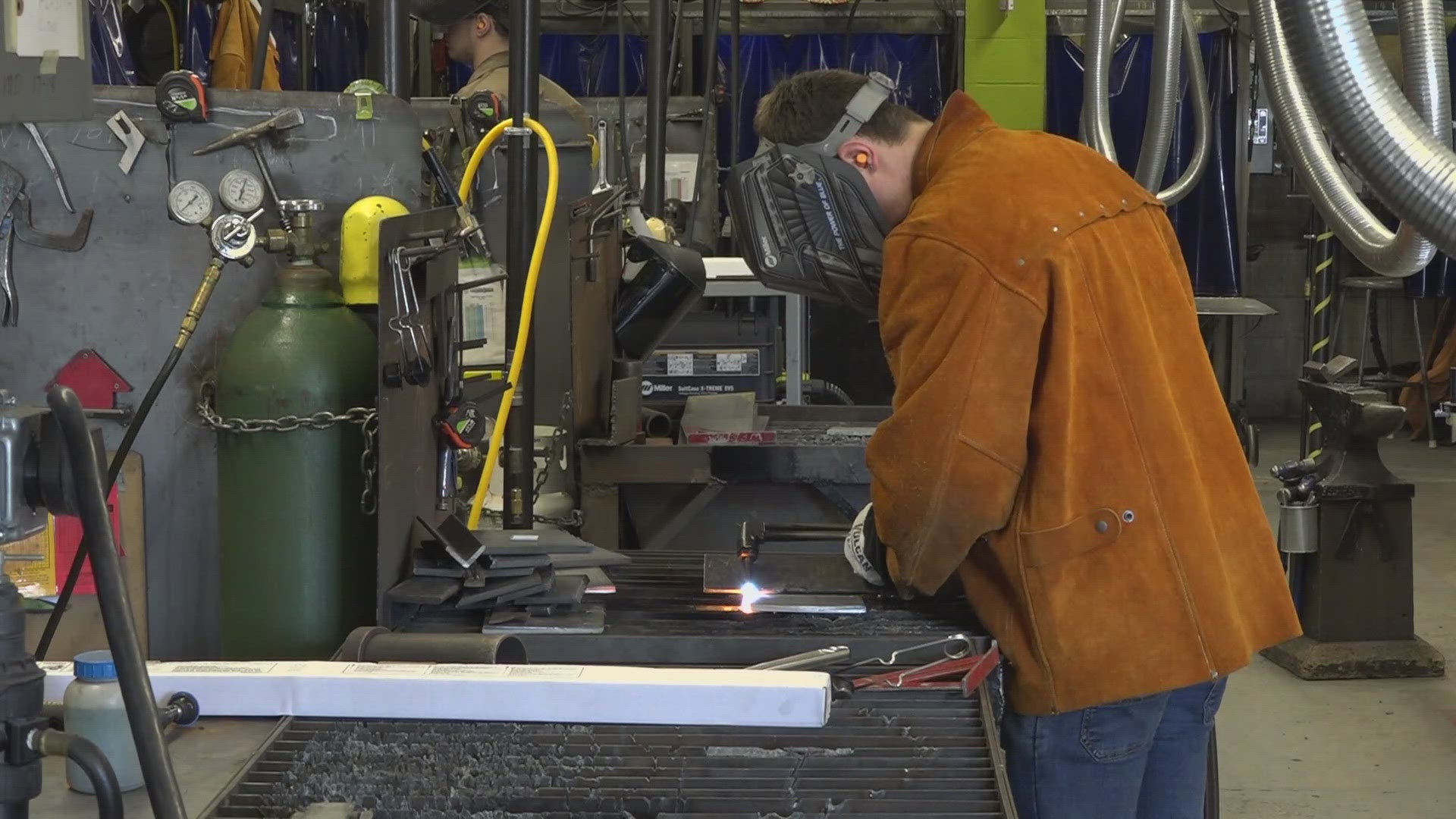MAINE, USA — Leaders in states bordering the Gulf of Maine expressed strong support Thursday for offshore wind, setting the region up to become the next battleground over the resource as some members of the area’s influential fishing industry voice objections.
Officials from Massachusetts and Maine, along with New Hampshire’s Republican Gov. Chris Sununu, said Thursday at the first meeting of the Agenda for the Intergovernmental Renewable Energy Task Force for the Gulf of Maine that they were optimistic offshore wind could help them reduce greenhouse gas emissions while producing thousands of jobs across New England.
Led by the federal Bureau of Ocean Energy Management, the task force must weigh concerns from commercial fishermen, environmentalists, coastal communities and other stakeholders before deciding where leases on the Outer Continental Shelf in the Gulf of Maine might be allocated and where they wouldn’t be allowed. There are also technical challenges, since the deep waters of the gulf may require floating platforms.
So far, there are no federal leases in the gulf, and the first offshore wind farm is still six to 10 years from operation. Still, officials estimate offshore wind could eventually be a critical energy source in New England.
“If it’s going to work anywhere, it could work here,” Sununu told a packed conference room at the University of New Hampshire.
“If we do it right, get everyone together and put all the apples on the table from the beginning, there is no reason this can’t be extremely successfully,” he said. “We could become a model for the rest of the country.”
Dan Burgess, who directs the Maine governor’s energy office, said offshore wind could help the state meet its goals of getting 80% of its electricity by 2030 from renewable sources. The move is among a suite of environmental policies championed by Gov. Janet Mills, including a policy that overturns her predecessor’s ban on wind power development.
“We see a lot of potential for offshore wind in Maine both from a clean energy future, but also for the economy,” Burgess said. “At the same time, any development has to balanced with a full view of the all the existing uses that are currently taking place in the Gulf of Maine — commercial fisheries, maritime interest, habitat.”
More than a dozen members of the public also testified. Many were environmentalists supporting offshore wind as a critical tool in fighting climate change. But several commercial fishermen expressed concerns and cautioned the federal government to move slowly and ensure their decisions were based on sound science.
“We can’t stop it. There is too much momentum to try and find energy sources which might substitute for what we currently have,” said Erik Anderson, a fisherman and the president of the New Hampshire Commercial Fishermen’s Association. “We just want to protect the fishing environment and the fishing species and that whole regime that we have a vested in.”



